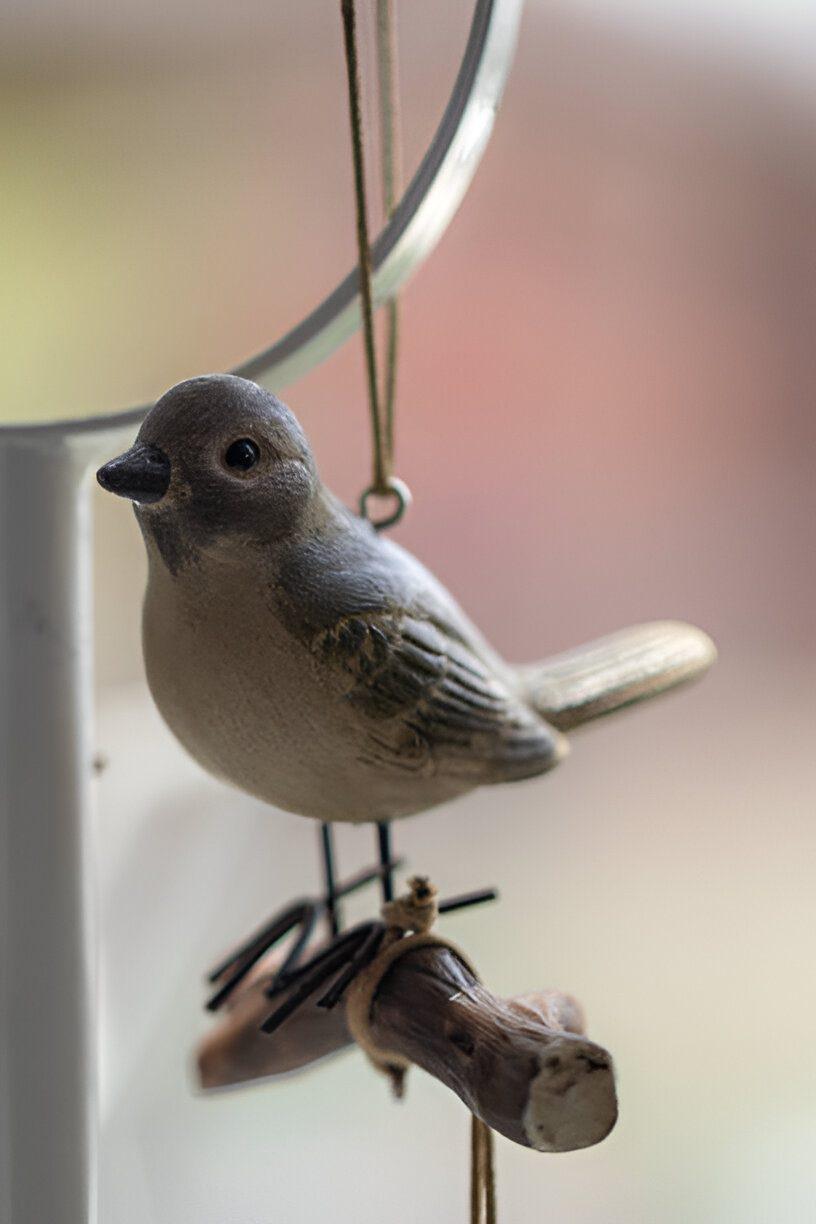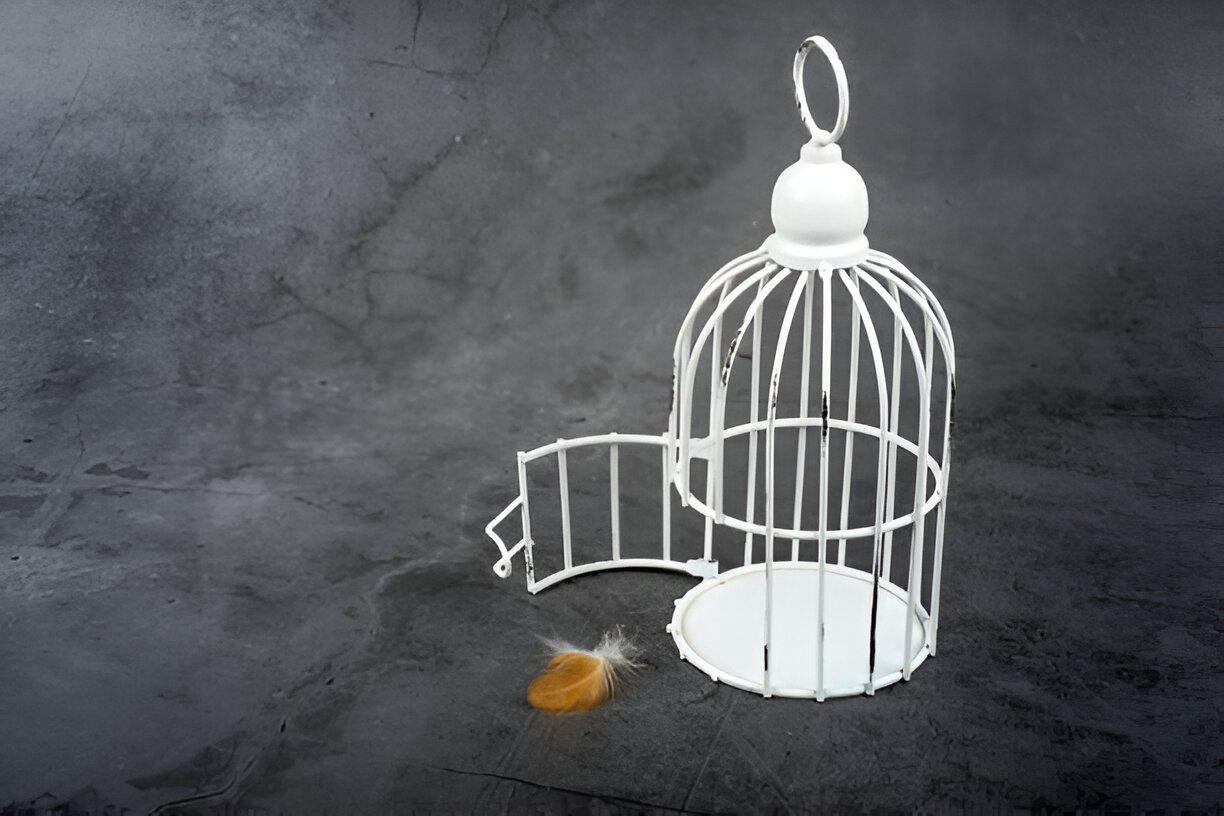The Overlooked Depth of Bird Grief
For many, birds are admired for their beauty, song, and mimicry, but their emotional depth is often underestimated. Unlike dogs and cats, which are widely accepted as emotionally complex, birds sometimes lack the same societal recognition—making the loss of a pet bird even harder to grieve openly. Yet these creatures form strong attachments, exhibit surprising intelligence, and leave behind a silence that feels all too real when they’re gone.
When a Feathered Companion Leaves a Profound Void

The Emotional Depth of Birds: More Than Just Instinct
Birds are sentient, social creatures capable of genuine emotional bonds:
🕊 Strong Social Bonds – Certain species, like parrots, develop lifelong attachments with humans.
🧠 Demonstrated Intelligence – African Greys, cockatoos, and other parrots can solve problems, mimic words, and recognize specific individuals.
🎶 Expressive Emotions – Birds show joy through song and gentle behaviors toward trusted humans; when grieving, they can withdraw or stop vocalizing.
🌿 Mourning Behaviors – Both in the wild and in captivity, birds may linger near a lost mate’s body or call out sorrowfully for a companion who isn’t there.
Their emotional nuance makes their loss especially impactful.
Why Losing a Pet Bird Hurts So Much
The silence that follows a bird’s passing can be profoundly unsettling. Key factors that intensify this grief include:
📅 Daily Interaction & Routine – Morning greetings, playful chirps, and evening chatter quickly become woven into everyday life. Their absence is felt in every quiet moment.
💛 Physical Affection – Many birds enjoy perching on shoulders or showing affection through preening and gentle beak taps, forging a tangible bond.
⏳ Long Lifespan, Deep Bonds – Some bird species live decades, creating a sense of enduring companionship akin to a longstanding friend or family member.
💬 Lack of Social Recognition – Societal sympathy often extends more readily to dog or cat owners. Bird-lovers may feel their grief is minimized or overlooked.
Navigating Bird Grief: Finding Healing After Loss
Allow Yourself to Mourn
Your grief is real and deserving of compassion. Birds can occupy a significant emotional space—give yourself permission to feel sorrow, even if others may not understand.
2. Create Rituals & Memories
Candle-Lighting: Light a candle in their honor.
Scrapbooks or Journals: Collect photos, stories, or even small feathers.
A Quiet Ceremony: Release flower petals or scatter birdseed where they loved to perch.
3. Fill the Silence with Comfort
Recordings of Their Voice: If you have audio clips, replay them when you feel the ache of quiet.
Nature Sounds or Soft Music: Gentle audio can ease the sudden stillness they once filled with song.
4. Seek Understanding Support
Bird-Owner Communities: Connect online or locally with those who’ve known a similar bond.
Trusted Allies: Share memories with friends or family who respect your feelings.
Therapy or Counseling: If grief feels overwhelming, professional guidance can help navigate complex emotions.
5. Consider a Meaningful Tribute
Gardening: Plant a tree or flowers in their memory.
Artwork: Commission a painting or create your own tribute piece.
Donate or Volunteer: Support a bird sanctuary or rescue in honor of your lost companion.
“Their song may be gone, but the memory echoes in every quiet moment, carrying love on unseen wings.” — Beatrice L.
Things To Try This Week!
- Share a Story:
Talk about a favorite moment or quirk of your bird with someone who understands—the laughter or tears can be a comforting release.
- Create a Small Memorial Space:
Place a feather, a toy, or a photo near a candle or plant. Make it a corner of gratitude, remembering what your bird brought into your life.
- Light Music or Nature Sounds:
If you miss their daily chatter, softly play recordings of birdsong or gentle music. Let these soothing tones stand in for the hush, offering peace rather than emptiness.
Conclusion
When a pet bird’s vibrant song abruptly stops, the quiet can feel like a yawning void. The emotional attachment forged through daily routines, shared melodies, and curious companionship is not lightly erased. Unlike popular assumptions, grief for a bird is profound and entirely valid—their intelligence, affection, and presence weave deeply into your life.
By acknowledging your sorrow, creating meaningful memorials, and finding supportive spaces, you can transform the silence they leave behind into an enduring tribute to the love and joy they once brought. The hush that remains isn’t an end but a testament to how fully they lived in your home and heart. 🕊
Physical departure can’t silence the bond you shared with your bird. Each moment of remembrance—through conversation, memorial, or gentle self-care—becomes an anchor for healing.
Explore our cherish collections below for comforting ideas, creative tributes, and shared wisdom to honor your bird’s memory. Because while their cage may be empty, their spirit remains in every song of your heart.
Sustaining Their Song: Embracing Remembrance Beyond the Cage
Though your bird’s sweet chirps have ended, the love you shared still resonates. Our All Things Cherish collection provides thoughtful insights, tangible keepsakes, and supportive communities that help ease the hush, ensuring your feathered companion’s spirit soars on in your daily life.
More Reflections, More Growth
Loss is complex, and the road to healing is different for everyone. These reflections offer insight, support, and guidance as you navigate this journey.
Guilt and Grief: Coping with the Coulda, Woulda, Shouldas After Losing a Grandparent
Losing a grandparent can stir feelings of guilt and regret. This guide explores how to cope with the “coulda, woulda, shouldas,” reframe negative thoughts, and honor the love and memories you shared with your grandparent.
Long-Distance Love: Coping with the Grief and Sadness of Long-Distance Grandparenting
Long-distance grandparenting comes with unique challenges, including grief and separation from your grandchildren. This guide offers practical strategies to help maintain strong bonds and emotional connections, even when physical distance creates a sense of loss.
Cumulative Grief: Coping with the Loss of Multiple Grandparents in a Short Time
Cumulative grief occurs when multiple losses pile up, overwhelming the grieving process. This guide offers strategies for navigating the complexities of losing multiple grandparents, honoring their memory, and caring for yourself during this challenging time.
Navigating Grief After the Loss of a Grandparent: A Guide for Adult Grandchildren
Losing a grandparent is often an overlooked form of grief. For adult grandchildren, this loss can bring deep sadness, mixed emotions, and a sense of disconnectedness from family history. This guide offers coping strategies for navigating grief, honoring their legacy, and integrating their presence into your life moving forward.
Holding On, Together: Maintaining Family Connections After Loss
Loss reshapes family dynamics, but shared grief can strengthen bonds. This guide offers strategies for communication, rituals, and support to maintain family connections.
A Subtle Yet Profound Loss: Grieving an Extended Family Member
Grieving an extended family member’s death is a unique journey. This guide offers compassionate advice to honor their memory, navigate grief, and find healing.
Honoring a Child’s Memory
Honoring a child’s memory is a profound way to navigate grief. This guide explores creative tributes, rituals, and acts of kindness to celebrate their enduring legacy.
Sibling Bonds: Coping with Loss Together
Grieving a sibling is deeply personal. This guide offers compassionate strategies to navigate grief, honor their memory, and strengthen your bond through shared healing.
When a Sibling Passes: Healing the Void
Losing a sibling leaves a profound void, but healing comes through honoring their memory and embracing connection. This guide explores ways to navigate grief and find peace.
Explore Journeys of Healing and Solace:
Discover dedicated spaces that offer understanding, guidance, and connection through grief. From the loss of loved ones to life’s challenging transitions, each category provides a pathway to reflect, connect, and find peace in shared experiences.


























